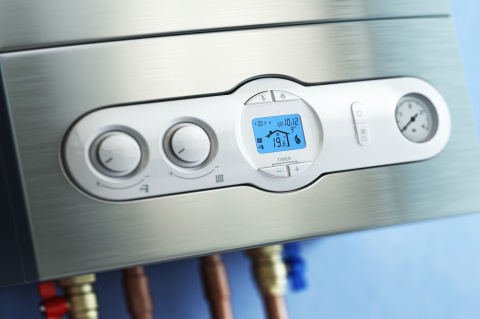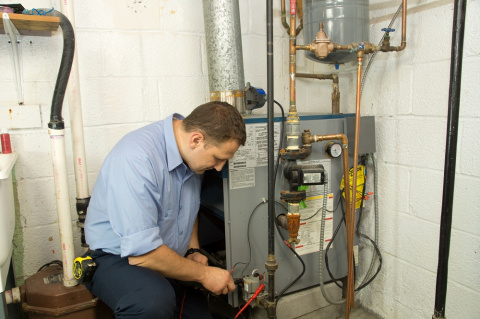Typical forced-air furnaces use either electricity or natural gas to power the furnace. Some homeowners only have one option when installing a new furnace, while others can choose between either gas or electric. If you’re unsure which type of furnace to have the HVAC contractor install, here are some different factors to consider for each type of furnace.
How Each Type Works

The main idea behind each type of furnace is basically identical. Both types use a thermostat that’s placed in a central location in the home. The thermostat reads the temperature of the home, and if it’s below a set point on the thermostat, it will signal the furnace to run a cycle until the temperature reaches that set point. How the burner is lit is the main difference between each type. The gas furnace causes the pilot light to ignite the main burner. The pilot light is always burning, and the gas fuels the burner. An electric furnace uses electric ignition upon receiving the signal from the thermostat. This then activates the heating elements. The hot air in either type of furnace is then delivered throughout the home through ducts and vents.
Safety
Safety and HVAC service are important considerations when deciding between these two furnace types. In general, gas furnaces require more professional attention than electric furnaces to ensure safety. This is mainly because carbon monoxide is created as a natural byproduct of the combustion used in a gas furnace. That means that proper maintenance and ventilation is imperative in order to maintain safety. However, modern gas furnaces have safety features, so they’re generally considered to be as safe as electric options.
Cost
There are a couple of important factors to consider when thinking about the cost of electric and gas furnaces. Electric furnaces are almost always less expensive than gas furnaces, especially if there isn’t already gas plumbed to the home. Installation costs are usually similar. But beyond the cost of purchasing and installing the furnace, it’s important to think about the cost of running your new furnace. Gas furnaces will certainly cost you less to run, which often makes up for the difference in the purchase price. Natural gas is inexpensive, while electricity is significantly more.
Energy Efficiency
In the past, there was more of a discrepancy in energy efficiency between the two types of furnaces. However, advances in technology have resulted in the gap narrowing significantly. Furnaces are rated by annual fuel utilization efficiency, or AFUE. The number of AFUE indicates the percentage of fuel used for heating. An electric furnace may rate up to 100%, while a gas furnace typically doesn’t rate higher than 98%. There are more energy-efficient features you can consider with gas furnaces to more closely match the efficiency of an electric furnace.

Climate Considerations
Another factor to consider is the typical climate. More moderate climates or those with warmer winters that have less demand for heating would do well with either type of furnace. An electric furnace may last longer and require less maintenance or fewer frequent HVAC repairs in Roswell, GA. Gas furnaces are better suited to colder climates than electric because of the reduced cost in running the heater more frequently, as well as the fact that a gas furnace produces heat at higher temperatures more quickly than an electric furnace. To learn more about the different options for both types of furnaces and HVAC service in Roswell, GA, contact Omega Heating & Air today.


